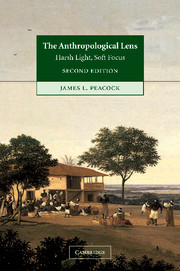Preface to the second edition
Published online by Cambridge University Press: 05 June 2012
Summary
As Anthropology and the world have moved toward and into the new millennium, both have changed, not so radically, perhaps, as some would announce but nonetheless importantly. This revised edition responds to those changes while retaining concerns and concepts which remain salient throughout Anthropology's first century and into the present. Three of these abiding foci are culture, fieldwork, and relevance. Each remains a focus of one of the three chapters: culture in the first chapter, “Substance,” fieldwork in the second chapter, “Method,” and relevance in the third chapter, “Significance.”
Within each chapter, however, new questions, issues, and perspectives are interwoven. In Chapter 1, the concept of culture now leads into dynamic perspectives and issues, such as globalism, feminism, and power. In Chapter 2, fieldwork now leads into questions about reflexivity – the interplay between fieldworker and fieldwork and the larger question of how knower affects the known. In Chapter 3, questions about application now lead into such concerns as Human Rights and the potential for anthropology to shape public issues.
While revisions are called for since the Lens was drafted two decades ago, the first edition anticipated many of the recent developments. For example, the postmodernist emphasis on “construction” continues the caution against “the fallacy of misplaced concreteness” and is also cautioned by “the fallacy of misplaced abstractness,” both mentioned in the first edition; that is, culture is a construction, to be sure, but saying so should not deny the primordial power of those phenomena to which we apply labels such as “culture.”
- Type
- Chapter
- Information
- The Anthropological LensHarsh Light, Soft Focus, pp. xv - xviiiPublisher: Cambridge University PressPrint publication year: 2001



